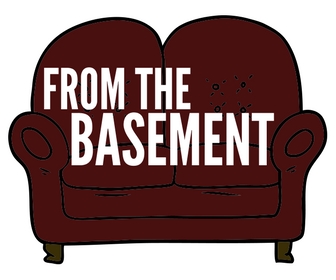From the Basement: UNC Investigation

Paul Trujillo | Sports Layout Editor
The NCAA concluded its investigation of the University of North Carolina at Chapel Hill football and basketball teams this past Friday. Well, maybe “concluded” isn’t the right word.
After a seven-year investigation, with two decades of evidence on its side, fighting against a defense described by columnist Dan Wetzel as “the most outlandish defense in NCAA infractions history,” the NCAA failed, and failed massively, to punish a school that committed academic fraud by hosting a large number of “paper classes,” which students were not required to attend as long as they wrote one graded paper at the end of the semester.
There are only two possible explanations for this outcome. One would be that the NCAA has given up completely on doing its job, which seems unlikely.
The second option, however, seems to hold up.
The NCAA simply has no concern for academic integrity. And why would it? It is, at most, a tertiary concern for an organization that profits so massively from college athletics. In fact, the NCAA listed $918 million in total assets on its 2016 Financial Statement. If schools are keeping their best athletes on the field, why would the NCAA really care how they do it? Well, unless they’re paying them of course, but don’t worry, we’re getting there.
The reasoning the NCAA gave for letting UNC off the hook was that “while student athletes likely benefited from the courses, so did the general student body.”
First and foremost, if UNC has a large number of students benefitting from “paper classes,” one of which former UNC basketball player Rashad McCants admits he received an A in despite never being present in the class, the entire academic accreditation of what is often considered one of America’s most prestigious public universities is called into question.
McCants also said, however, that basketball head coach Roy Williams was aware of the classes, a statement which suggests the problem lies within the athletic culture of the university.
Not only do these “paper classes” rob student-athletes of the education they have earned, they also cheapen the degree of all students by tarnishing the reputation of the university. The only people who win are the coaches and the NCAA, who keep their athletes on the field.
But what makes this infraction different from the others, specifically impermissible benefits?
The FBI is in the process of bringing down several schools that appear to have been paying players large sums of money to play at their universities. The University of Louisville, specifically its basketball program, was first, and the University of Arizona currently appears to be in the hot seat of these investigations. Public speculation has also pointed to a number of schools not mentioned here because they have not yet been officially indicted.
This is not to defend impermissible benefits, nor is it to defend these schools. This money, however, was not coming from the universities, but from the athletic companies which sponsored them (specifically Adidas and Nike). As ugly as it is to do such a thing, that money belonged to the athletics department, and nothing was taken away from the student body.
UNC, however, in defending itself before the NCAA, essentially mocked its own academic integrity and, at the same time, its student body. Louisville, Arizona and the schools that come next will be harshly punished, which is fair because what they did was no doubt impermissible. UNC, however, ruined its own reputation and cheapened the value of the degrees of each of its students, yet the NCAA has apparently decided the teams still deserve to have their championship banners waving in the Dean E. Smith Student Activities Center on the Chapel Hill campus.
But again, why should the NCAA be concerned with any of this? As the reigning basketball national champion, UNC will return a strong squad and certainly contend for the title again. March Madness is the NCAA’s largest source of revenue, and keeping the big dog in the kennel will certainly make things more interesting.
This is an opinion article and does not reflect the views of The Tulane Hullabaloo. Shea is a sophomore at Newcomb-Tulane College. He can be reached at [email protected].
Your donation will support the student journalists of Tulane University. Your contribution will allow us to purchase equipment and cover our annual website hosting costs.
















Leave a Comment